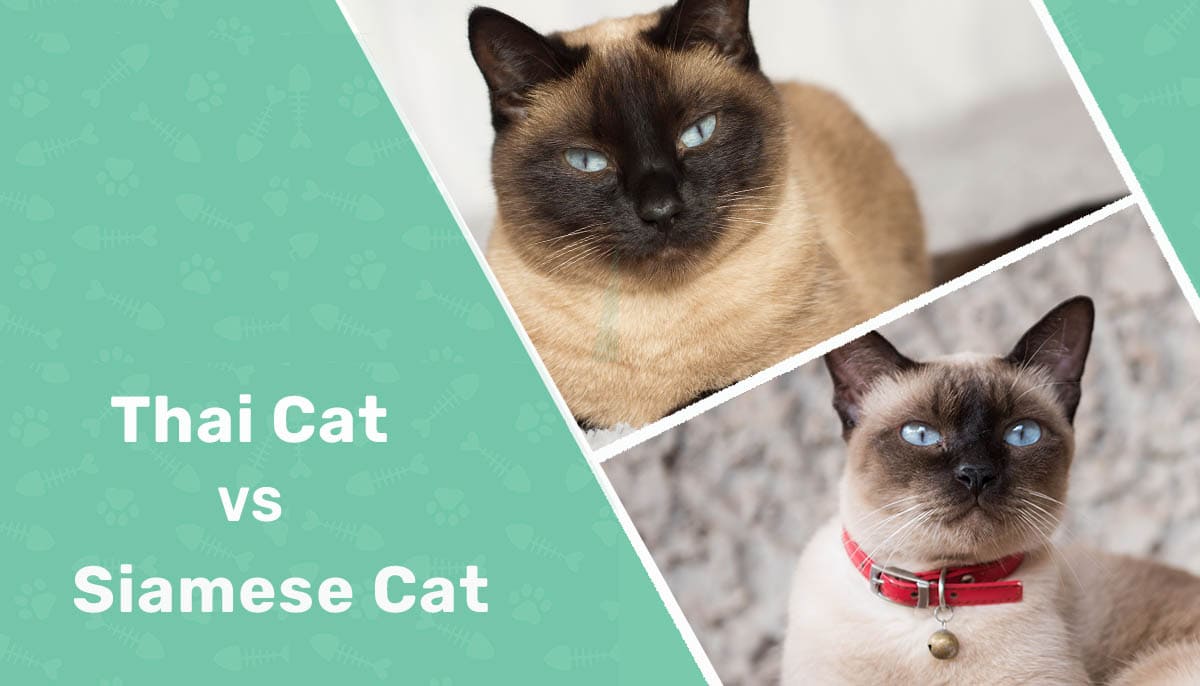Click to Skip Ahead
If you’re looking for a cat that wants to stay by your side all day, the Thai cat and the Siamese cat are great choices. Not only do they have similar personalities, but they look pretty similar, too! Although there are similarities between the two cats, they’re two distinct breeds, and the more you learn about them, the more you realize just how different they can be from each other. With that in mind, we’ll discuss the Thai and Siamese cats, so you can learn a little more about each breed and how they differ!
Visual Differences
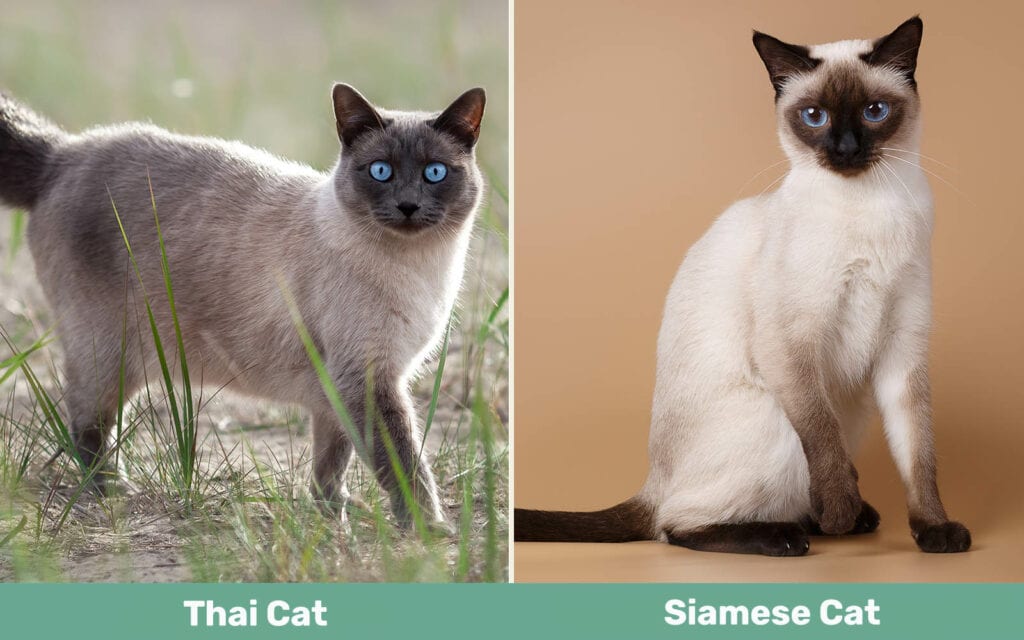
At a Glance
- Average height (adult): 11–14 inches
- Average weight (adult): 8–15 pounds
- Lifespan: 12–16 years
- Exercise: 1+ hours a day
- Grooming needs: Moderate
- Family-friendly: Yes
- Other pet-friendly: Often
- Trainability: Challenging
- Average height (adult): 8–10 inches
- Average weight (adult): 6–14 pounds
- Lifespan: 15–20 years
- Exercise: 1+ hours a day
- Grooming needs: Moderate
- Family-friendly: Yes
- Other pet-friendly: Often
- Trainability: Challenging
Thai Cat Overview
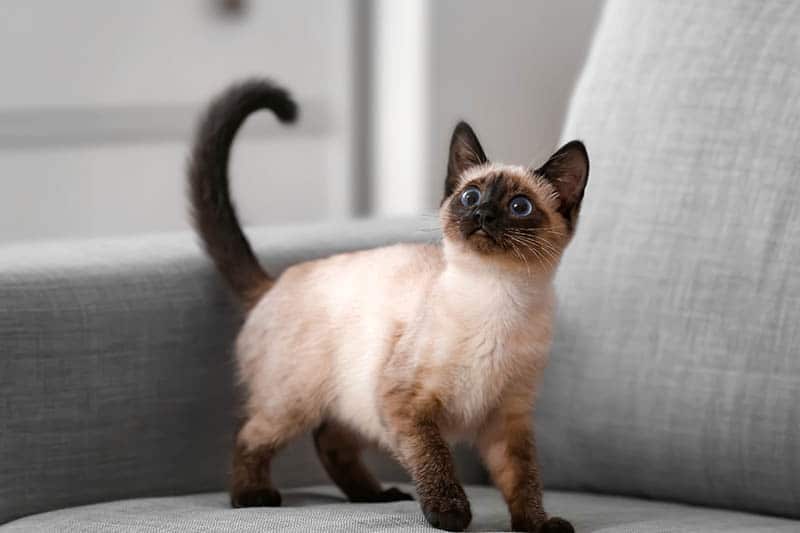
While Thai cats look incredibly similar to Siamese cats, they’re two completely different breeds. Thai cats can come in any color but always have a point color pattern with a darker face.
However, they’re usually born snowy white, and most of the time, they retain their blue eyes throughout their lives. They’re incredibly similar to Siamese cats but usually have a stockier build with thick paws, short tails, and an apple-shaped head.
Personality / Character
Thai cats love spending time with their owners and usually do whatever they can to spend the entire day near them. They’re also extremely vocal, so if you want a cat that isn’t going to talk to you, you might want to consider a different breed.
Still, they’re very smart and affectionate, which isn’t what you always think about when you think of a cat! Overall, their personalities are similar to that of a Siamese cat.
Health & Care
The Thai cat is generally very healthy, with few breed-specific health problems you must look out for. However, common health problems like allergies, dental issues, and ear infections can crop up occasionally.
However, while it’s not common to have health problems with a Thai cat, they’re not immune from health conditions either. Getting your Thai cat from a reputable breeder and taking it to the vet is still important to stay on top of any potential health problems.
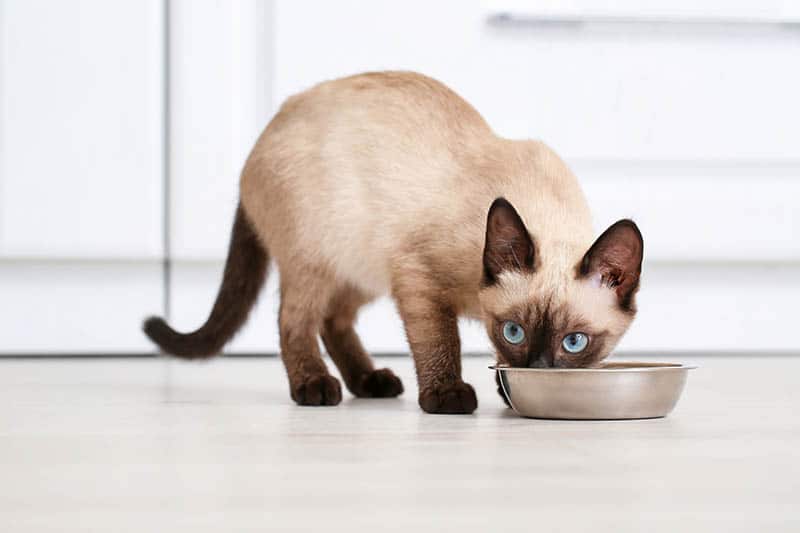
Suitable For:
If you want multiple pets, have children, or just want a cat to spend all day with you, the Thai cat can be a great choice. They will do everything they can to spend as much time with you, but they’re not an ideal choice if you don’t spend much time at home.
Thai cats need attention and affection, so ensure you have plenty of time to spend with them before you bring one home.
Siamese Cat Overview
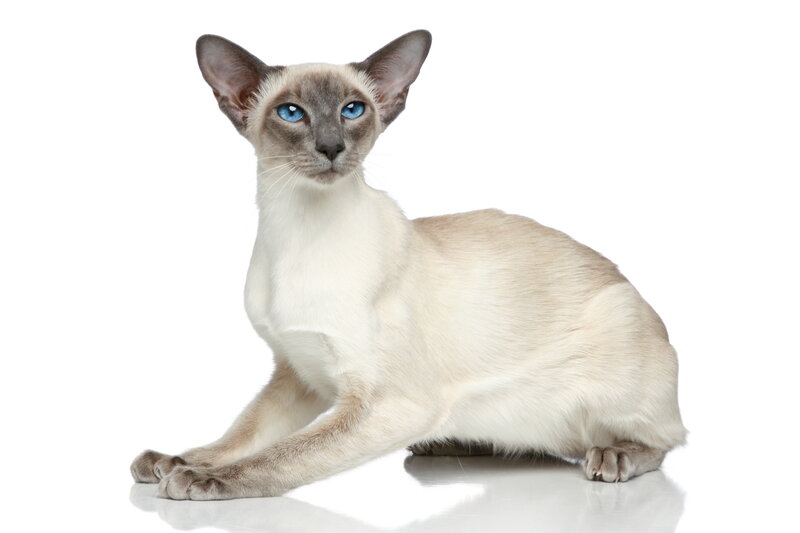
Siamese cats have a unique appearance that makes them among the most recognizable breeds in the world. They have bright blue eyes, long legs, and medium-length coats.
Although seal is the most instantly recognizable color pattern, you can find Siamese cats in various color patterns, including chocolate, blue, and lilac.
Personality / Character
If you’re looking for a smart cat that’s fun to play with and loves spending time around people, a Siamese cat is a great choice. They’re interactive cats, loving and craving attention from their owners.
There’s a reason many people call Siamese cats “Velcro kitties” since you’ll find them beside you when you are home! Just remember that Siamese cats can be a bit more vocal than other breeds, so be ready to hear quite a bit of meowing if you have one.
Health & Care
Siamese cats are generally a pretty healthy cat breed, and they have an extremely long lifespan. It’s not uncommon for a Siamese cat to live up to 20 years, which is twice as long as some other cat breeds.
Because Siamese cats can live long lives and are generally healthy doesn’t mean you don’t need to do anything for them. Common health issues that can affect Siamese cats include asthma, dental problems, amyloidosis, and cancer. Getting your Siamese cat from a reputable breeder can help mitigate many of these health concerns.
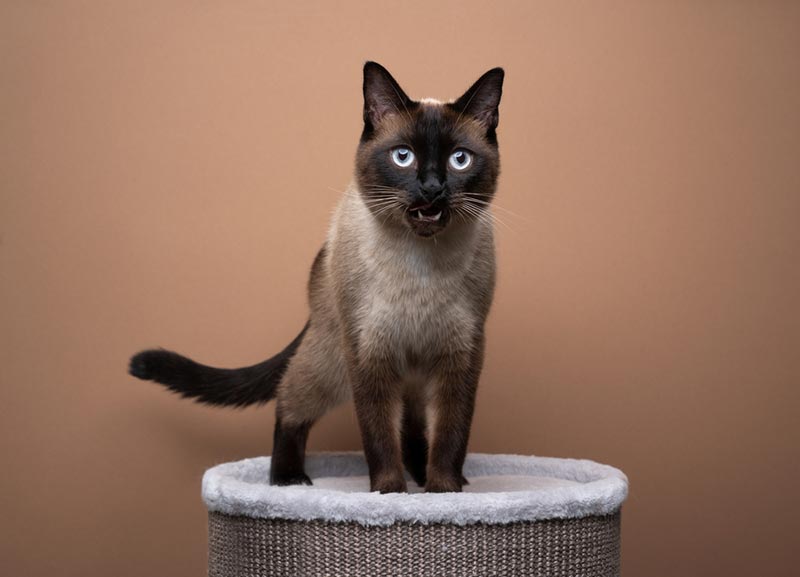
Suitable For:
Siamese cats are perfect for active families with plenty of time to entertain their pets. They’re vocal kitties that will carry on a conversation with you for most of the day. However, they’re not great choices if you’re always out and about since they crave human interaction. In short, if you want a cat that acts like a dog and lives a long time, the Siamese cat is precisely what you’re looking for!
Which Breed Is Right for You?
Whether you’re looking for a Thai cat or a Siamese cat, you’re getting an affectionate and vocal companion who wants to spend every waking moment with you. They’re both very loving and make great companions for adults and children! Even better, if you have other pets in your home, the Siamese and Thai cats can become lifelong friends with other animals.
Featured Image Credit: (L) Linalyan, Shutterstock | (R) Suwanon Wongsaphan, Shutterstock

